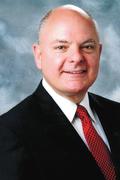Digital health meets consumer electronics and brain training
 There’s no doubt that the biggest buzz at this year’s Consumer Electronics Show in Las Vegas didn’t come from the slimmest of televisions, the most fashionable headphones or even a dancing robot.
There’s no doubt that the biggest buzz at this year’s Consumer Electronics Show in Las Vegas didn’t come from the slimmest of televisions, the most fashionable headphones or even a dancing robot.
The buzz of CES 2013 was firmly centred on all things health and the Digital Health Summit is where the action was happening. On the eve of opening Arianna Huffington described what was about to happen in Las Vegas as a ‘Perfect Storm’
“I’m talking about one of those moments in which several trends converge to create something larger, a moment we will look back on as the time everything changed ….. this year’s CES has the potential to be one of the most transformative ever, and that’s because of a significant change in attitude about what role technology can, and should, be playing in our lives. That’s the foundation of this perfect storm”.
And in a show that has previously brought such innovation as Xbox and the CD player, the real innovation took place in Digital Health and in most cases, the brain was front and center. It’s perhaps not surprising given SharpBrains’ most recent state of the industry report has found that the global marketplace of digital tools for brain health (or “digital brain health”) surpassed $1 billion in 2012 and is forecasted to reach $6 billion by 2020.
From Muse’s brain sensing headband, Huffington’s own ‘GPS for the Soul’, ‘Hapifork’ that tells you when you’re eating too fast and our own online assessment and cognitive training program, MyBrainSolutions, the clear message of CES 2013 was how technology is delivering better health and wellness to the widest possible audience.
CNN’s Sanjay Gupta opened Digital health Summit 2013 highlighting digital health innovation the military is putting to work on the frontline in Iraq and Afghanistan as well as helping veterans back here in the United States.
Gupta’s keynote set the stage for the rest of the summit and the concurrent digital health product exhibition, which filled nearly an entire hall of the massive Las Vegas Convention Center.
Following up Gupta was the featured panel discussion, “Digital Health Revolution: Body, Mind and Soul” where Huffington was joined by author Deepak Chopra, Sonny Vu from ‘Misfit Wearables’ and Andrew Thompson of Proteus Digital.
For Huffington the takeaway was simple;
“So for me the most exciting takeaway from this year’s CES isn’t the smart car or the smart home, it’s the smart person — the reconnection of mind, body and spirit. It’s the best way for each of us to regain control of our health, and for our country to regain control of our death-spiraling health care system”.
So, is the proof in the pudding?
What we witnessed as both an exhibitor and participant with a keynote, ‘Your Brain on Tech’, is that the digital health revolution has taken a giant leap forward in mainstream adoption but where the real challenge lies is in bridging the enormous divide between ‘Knowing’ and ‘Doing’.
How do the myriad of monitoring devices, mobile Apps and online health solutions deliver real changes for their users if they don’t provide the path for the consumer to first Know their condition and then interact and Train their brain in a manner that engages and motivates behavior change?
The brain needs to be at the center of any digital health revolution and it is already proving to be so with SharpBrains predicting 10 specific ways in which digital platforms can change brain health in the short-term.
That is why the stand out devices and Apps at Digital Health Summit brought knowing and training the brain into focus as an increasing part of the wellness solution.
From years of research we know the brain interprets any change as threatening, and that it is important to learn by “doing.” Through brain training, we know consumers can develop core capacities that support making healthy choices, including the ability to focus on tasks, learn from mistakes, overcome impulses, tune into the positive, manage stress and develop resilience.
Supporting those choices and helping people bridge the gap between Knowing and Doing will generate real behaviour change that enhances health and wellness.
That is at the heart of the challenge facing the Digital Health movement; Can the innovations on display at CES 2013 lead to enduring behaviour change of new brain habits in their users or not?
It’s not the smartest technology that ends up being adopted mainstream but rather the one that responds and delivers on the consumer’s desire to change and importantly, helps them do that within their already busy lives.
There was much promise at CES 2013 and Huffington is right to say it had the potential to be the most transformative ever. We’d go further and say 2013 cemented the position of the Brain as the true transformative element of Digital Health.
Who knows what we’ll see as a result at the next SharpBrains Virtual Summit and CES Digital Health Summit.

 – Dr Evian Gordon is the Executive Chairman and Dr Gregory Bayer is the CEO of the Brain Resource Company. You can learn more about their work and insights by watching ‘Your Brain on Tech’
– Dr Evian Gordon is the Executive Chairman and Dr Gregory Bayer is the CEO of the Brain Resource Company. You can learn more about their work and insights by watching ‘Your Brain on Tech’
–
Related articles:


